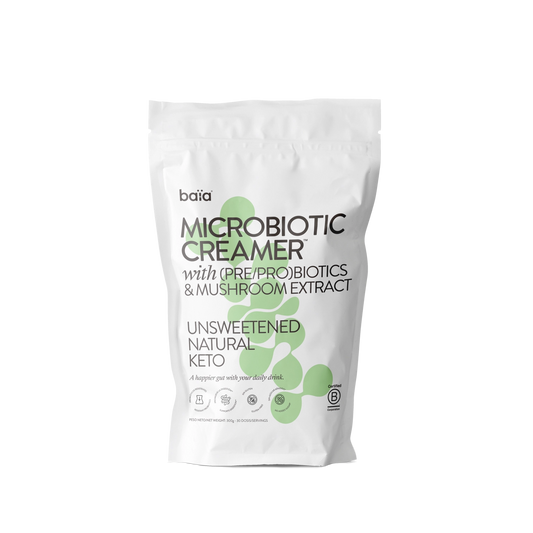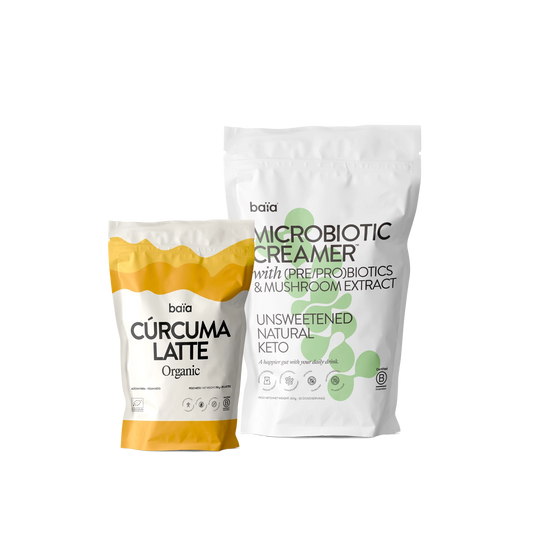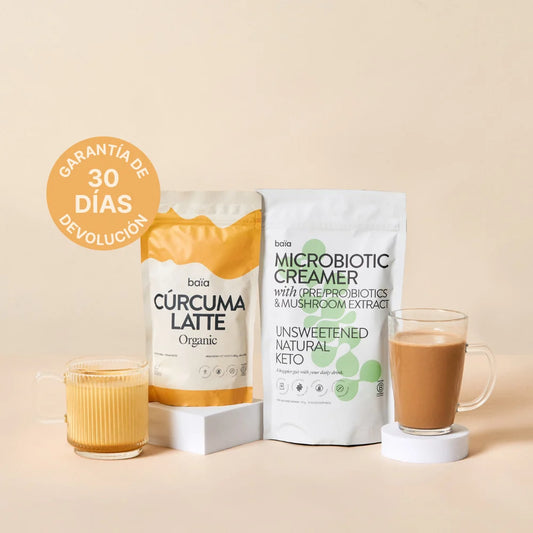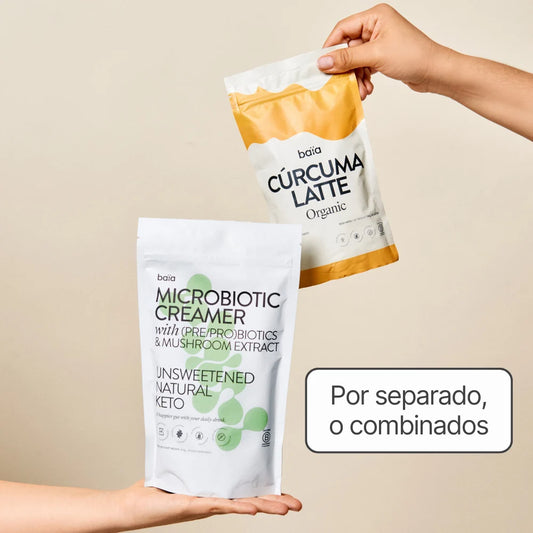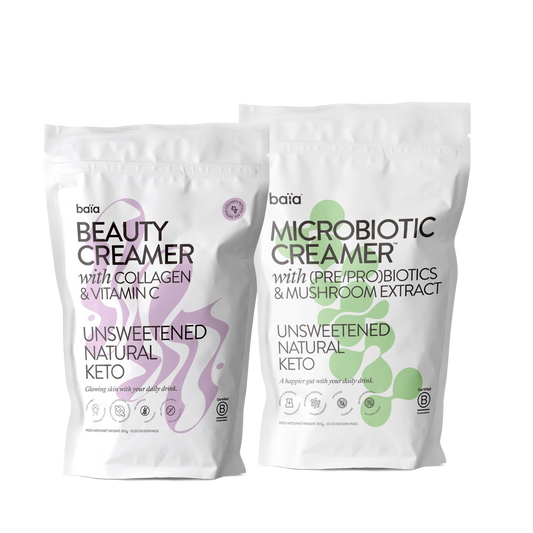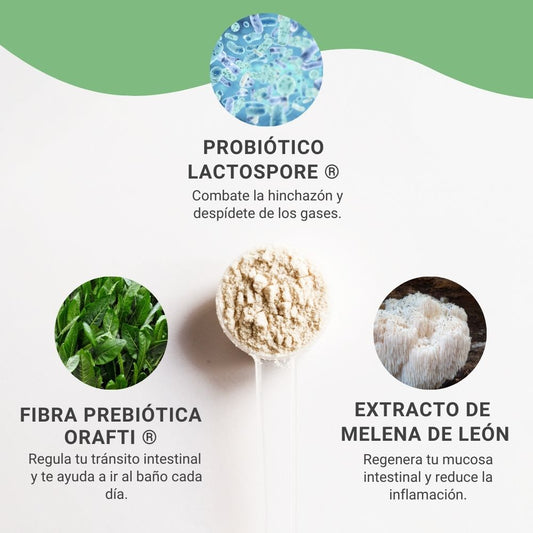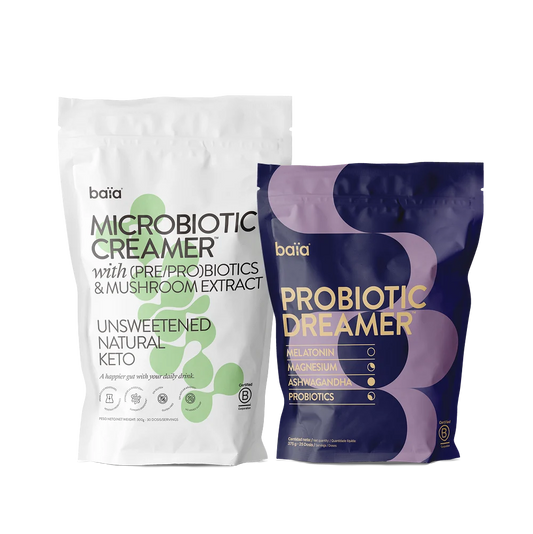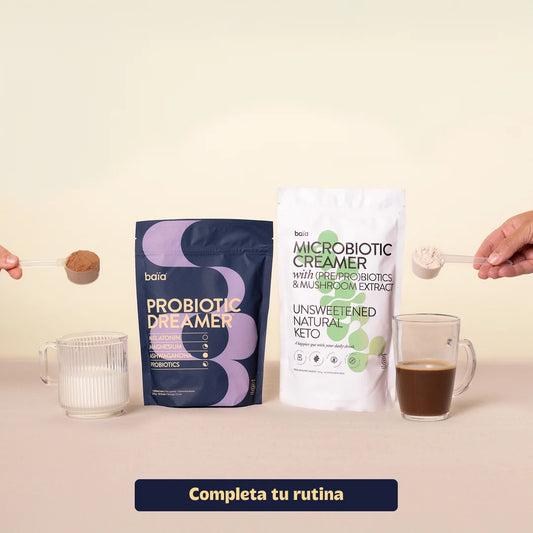What is the microbiota and what functions has ?
por Baia Food pt-PT Nov 04, 2025
Tabla de contenidos
Did you know that your gut is home to a universe of microorganisms that influence your health? That universe is called microbiota, and its importance is much greater than you imagine.
Find out in this article what is microbiota and how it affects your well-being general.
What is microbiota?
The microbiota It is the set of microorganisms such as bacteria, viruses and medicinal mushroom that live in our bodies. We can find them on the skin, in the mouth, in the respiratory tract, in the urinary tract, in the genital tract, etc., but between 70% and 80% are found in the intestine.
Although the idea of having these microorganisms inside us sounds shocking, most of them are beneficial and necessary for our bodies to function optimally.
In fact, the intestinal microbiota plays an essential role in food digestion, the immune system, and the production of essential vitamins.
So, far from being harmful, these bacteria are our health allies.
Gut microbiota: why is it so important?
The intestinal microbiotaThe digestive tract, considered an organ, is one of the most complex and vital ecosystems for our health. It is composed of trillions of microorganisms that have specific functions, such as breaking down certain foods that the stomach and small intestine cannot digest on their own.
But the intestinal microbiota not only Help in digestion. It also performs other key functions, such as:
- Strengthens the immune system: Help to prevent various microbiological conditions by competing with pathogenic bacteria. You can also buy microbiotic creamer and Helpfor your microbiota.
- Production of vitamins: Such as vitamin K and some of the B group, essential for blood clotting and energy production.
- Emotional balance: Recent studies suggest that there is a connection between the gut microbiota and the brain, known as the gut-brain axis. An imbalance in the microbiota may be linked to alterations in the well-being emotional.
We feed the intestinal microbiota and it feeds us. Help to digest fibers and produce nutrients and vitamins, we Helpto keep our immune system strong, protect us against pathogens, and influence our nervous system and mental health.
What is the intestinal microbiota and how does it develop?
The intestinal microbiota It begins to form from birth. During the first years of life, this set of microorganisms evolves until it stabilizes around the age of three.
Throughout life, factors such as diet, antibiotic use, stress, and age can influence your balance.
When this balance is broken, we can fall into a condition in which the intestinal microbiota is altered, an imbalance, which can trigger digestive problems, inflammation or problems in metabolism.
How to maintain a healthy gut microbiota?
Maintaining a balanced microbiota is essential for good health.Below, we share some strategies to take care of your microbiota:
- High-fiber diet: Foods rich in fiber, such as fruits, vegetables, tubers, and whole grains, feed the beneficial bacteria in your gut, Helptrying to maintain their balance.
- Incorporates probiotics and prebiotics: Probiotics are live microorganisms that benefit the Gut health and come from fermented foods like yogurt or sauerkraut. Prebiotics are fibers that feed the living microorganisms that are good for us. We can find them in foods like asparagus and artichokes.
- Avoid unnecessary use of antibioticsAntibiotics can eliminate both good and bad bacteria, disrupting the balance of the microbiota. They should only be taken with a medical prescription when necessary.
Maintain a healthy lifestyleStress and lack of sleep can negatively affect your microbiota. Getting a good night's sleep and practicing relaxation techniques like yoga or meditation can help. Helpto maintain their balance.







